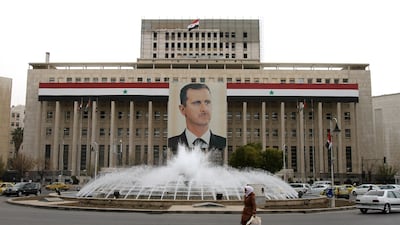Syria will penalise social media users with jail terms and fines if they undermine the economy with their posts.
The new measures are part of a broad cybersecurity law to prevent online crime, including credit card fraud, defamation and blasphemy.
Breaches of the new law would attract a jail term of four to 15 years and a fine as high as 10 million Syrian pounds ($4,000).
Online crimes will include “offending the financial status of the state with posts that undermine the financial system and the exchange rates”, state news agency Sana reported on Wednesday.
The government is looking to guard the state against growing online threats as it struggles to recover from 11 years of devastating civil war and international sanctions that have hurt the economy.
By extending its control over social media, the new law will give legal basis to measures already in place to silence dissent against soaring inflation, the depreciation of the local currency and increasing poverty, Syrians using nicknames on social media have said.
The deepening economic crisis has followed the rising political stature of President Bashar Al Assad, who has consolidated his control over the country after clawing back vast areas from rebels with crucial support from Iran and Russia.
While hundreds of thousands of people have been killed and millions displaced in the war, the Syrian pound has lost much of its value.
A US dollar, which traded at about 48 Syrian pounds before the war, is about 3,500 pounds at the present official rate.
In the north-eastern province of Idlib, the last remaining stronghold controlled by forces opposed to the president, the ruling Hayat Tahrir Al Sham adopted the Turkish lira last year as an alternative to the Syrian pound – not because of its opposition to the regime but because of the plummeting local currency.
The government, because of its record of human rights breaches, has come under international sanctions against many businessmen and regime officials, and their relatives.
Foreign investors have fled and stayed away.
Syrians have suffered additional economic shocks from the pandemic and the Russian war on Ukraine, as Damascus is a key importer of Russian grains.
Prices of wheat and maize have shot up in recent weeks because of the sweeping international sanctions imposed on Russia.
Even in regime-controlled territories, there were rare protests in 2020 in the southern province of Suweida over the social and economic impact of the Syrian conflict.









